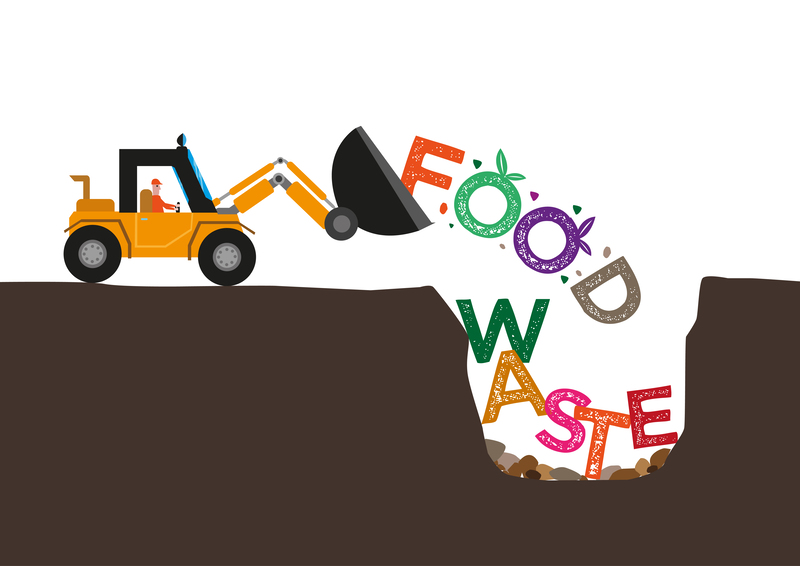In an era where environmental issues are at the forefront of global discussions, transitioning to a more eco-conscious home environment has become a priority for many individuals and families. This transition not only benefits the planet but also offers numerous advantages for your health and wallet. In this comprehensive guide, we will explore the diverse strategies you can adopt to transform your home into a sustainable haven.
Understanding the Importance of an Eco-Friendly Home
Before embarking on the journey towards a more environmentally-friendly home, it's crucial to understand why this shift is significant. An eco-conscious environment reduces the carbon footprint of your household, promotes healthier indoor air quality, and often leads to significant cost savings through reduced energy and water usage.
The Environmental Impact
- Reduction of greenhouse gases: A sustainable home contributes to the decrease of harmful emissions.
- Conservation of natural resources: Eco-conscious living emphasizes the efficient use of energy and water.
- Waste reduction: By incorporating recycling and composting, homes significantly reduce the amount of waste sent to landfills.
Benefits for Your Health
Living in an eco-friendly home doesn't just contribute to environmental causes; it enhances personal well-being by improving indoor air quality and reducing exposure to harmful chemicals.
Reduced Allergens and Toxins: An eco-friendly home design minimizes the use of toxic materials and encourages natural cleaning methods.
Improved Air Quality: With better ventilation and natural air purification, the risk of respiratory issues decreases.

Steps to Create a Green Home
Transitioning to a more sustainable home environment doesn't happen overnight. However, by progressively adopting various eco-friendly practices, you'll be well on your way to making a positive impact.
1. Optimize Energy Usage
Energy consumption in homes accounts for a considerable portion of the total energy demand. Optimizing this usage is essential in the journey towards sustainability.
Install Energy-Efficient Appliances: Start by replacing outdated appliances with those that have high energy efficiency ratings.
- Look for the Energy Star label, which certifies the product meets energy-efficient guidelines.
- Consider induction cooktops and LED lighting, as they consume less energy without compromising functionality.
Maximize Natural Light: Use sheer curtains or blinds to let in more sunlight, reducing the need for artificial lighting during the day.
Home Insulation: Ensure your home is properly insulated to maintain indoor temperature and reduce HVAC usage.
2. Water Conservation
Water is an invaluable resource, and conserving it should be a priority in every home.
Install Water-Saving Fixtures: Use low-flow toilets and showerheads to significantly cut down water use.
- Consider smart irrigation systems to prevent water wastage in gardens.
- Use a rain barrel to collect rainwater for gardening and other non-potable uses.
3. Adopt Sustainable Building Materials
When building or renovating, choosing eco-friendly materials adds sustainability from the ground up.
Use Recycled or Reclaimed Materials: Consider flooring and furniture made of recycled materials or reclaimed wood.
Nontoxic Building Materials: Choose non-toxic paints, adhesives, and finishes to reduce indoor pollution.
4. Embrace Green Technology
Integrating green technologies is a smart way to enhance home sustainability.
Install Solar Panels: Generate your own clean energy by utilizing the power of solar panels.
- Solar water heaters are also an excellent addition to cut down on water heating costs.
Smart Home Devices: Automate energy usage with smart thermostats and lighting systems to ensure maximum efficiency.

Eco-Friendly Living Habits
Beyond structural changes, the way you live in your home also contributes to an eco-conscious environment.
Reduce, Reuse, Recycle
Adopt practices that minimize waste and encourage recycling.
Limit Plastics: Opt for products with minimal plastic packaging and use reusable bags, containers, and bottles.
- Compost food scraps and garden waste to reduce landfill contributions.
- Donate or repurpose household items rather than discarding them.
Mindful Consumption
Adapting a conscious approach to consumption helps reduce unnecessary waste.
Buy Local and Secondhand: Support local producers and shops, and explore secondhand options for clothing and furniture.
Minimalistic Approach: Embrace minimalism to discourage excessive consumption and waste.
Conclusion: Your Eco-Conscious Journey
The journey towards a more eco-conscious home environment is ongoing and evolving. By implementing these tips, you'll play a crucial role in protecting our planet and inspiring others in your community to follow suit. The benefits of a green home extend beyond environmental conservation - they offer enhanced well-being, reduced expenses, and a fulfilling lifestyle that's in harmony with nature.
Now is the time to take action and make meaningful changes in your home that echo far beyond its walls. Join the eco-conscious movement and contribute to a sustainable future for generations to come.